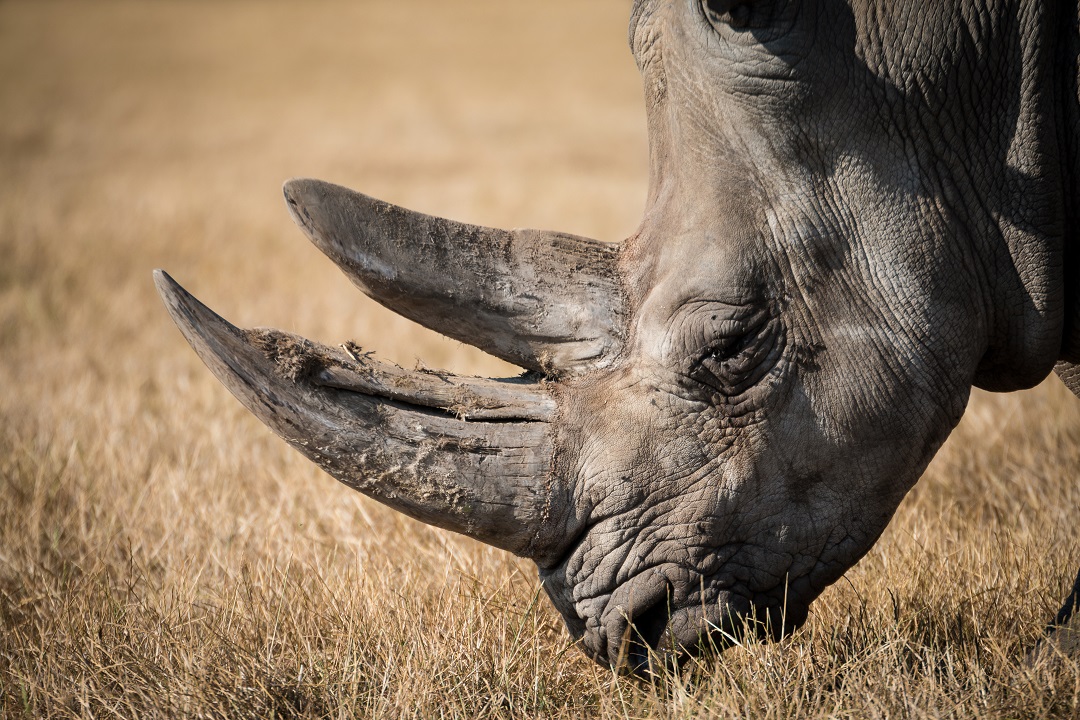Late last May, I received this email from a friend: “Janet, do you know Damien Mander? He gave a couple of TED talks recently. Had you ever watched/listened to him? Will you let me know what you think? Today?”
I responded that I did know Damien Mander from watching a TED Talk. I loved Damien Mander and what he was doing.
The next question from my friend was did I want to go hear him speak the following day in NYC.
I hesitated. Was there really any point to disrupting my plans to go to NYC to hear Damian Mander speak in person? I knew I liked this man and his work. I also knew roughly what he’d say. I had firm plans for the following day.
So…in desultory fashion, I started trying to rearrange my life to go to NYC, figuring if it worked, it worked, if it didn’t, it didn’t. It did. The next day, my friend and I arrived at Penn Station at 4:30 and made our way to the Village, our destination being a vegan restaurant, VSpot Organic, atmosphere “casual chaos”, on St. Mark’s Place. After a quick dinner, we convened in a back room with about 100 other people to hear Mr. Mander speak.
Yes, being there in person did matter. I can’t say why exactly, but the speaker and his message gained immediacy and power to me, despite the fact I couldn’t follow his soft-spoken, Australian-accented English very well against the background clatter issuing from the adjacent kitchen. The accompanying video clips and slides, by contrast, were all too comprehensible.
So, about the speaker and his message, though, an excerpt from the invitation provides an introduction.
VSpot Organic Announcement
VSpot Organic is pleased to present Mr Damien Mander, Founder of The International Anti-Poaching Foundation (IAPF).
Meet Damien, a former Royal Australian Navy Clearance Diver and Special Operations Sniper turned warrior for wildlife who is now using his unique skill set to protect the last remaining rhinos and elephants in South Africa.
Whilst deployed in Iraq, he project managed the Iraq Special Police Training Academy, overseeing training of up to 700 cadets at one time. Following 3 years and 12 tours of duty on Iraq’s front lines, he departed in 2008.
A trip to Africa brought him face-to-face with the horrors wildlife is facing. Liquidating his personal assets from his time in the military, he founded the International Anti-Poaching Foundation. Through IAPF, he has put his life and life savings on the line in an epic battle to protect wildlife from highly militarized poachers who are driven by global criminal cartels dealing in rhino horns and elephant tusks.
IAPF focuses on ranger training, employing military-style operations, intelligence, and legal direct action to bring poachers to justice.
Damien is a soldier turned anti-poaching crusader. He resides with his wife, Maria, and son, Leo, in Southern Africa.
The IAPF’s work has been featured in National Geographic Magazine, twice on 60 Minutes, Voice of America, Discovery Network, TEDx, Animal Planet, Good Weekend Magazine, The Project, Australia and Africa Geographic Magazines, Carte Blanch, Al Jazeera, ABC, Forbes, The Sunday Times, Christian Science Monitor, and the UK Daily Telegraph.
A Few Takeaways (With Help from My Friend)
- The suffering of animals is at the center of Damien Mander’s life.
- He and his team of IAPF rangers are on the front lines of the poaching crisis in South Africa, Mozambique, Zimbabwe, and Kruger National Park.
- He was emotional about the dedication of his team. They leave their families for half a year at a time. He regards them as his band of brothers.
- He provides military-style training.
- He prefers catching poachers without his armed men firing a shot.
- Poachers are young and are trying to earn money for their families. They see no other way they can do that without poaching.
- He talked about the astronomical monetary value per pound of elephant tusk and rhino horn.
- He stressed the importance of educating young Africans as to what they are losing–their heritage and pride.
- The need to cut demand is essential; China, United States, and Europe are main culprits.
- Yes, IAPF is making a difference.
- IAPF needs funds to support the needs of the men on the ground: boots, guns, technical equipment, vehicles.
- Jane Goodall is on the IAPF Advisory Committee.
A couple of weeks after the talk, I received an email that armed poachers had attacked IAPF rangers in Mozambique in their homes, critically injuring some rangers, with one man abducted, tortured, and dumped at road side. The poachers destroyed and stole equipment in the process.
And I read in the news about a scrimshaw artist and two dealers in Nantucket being arrested for the illegal smuggling of sperm whale teeth and elephant ivory. “Nantucket” and “international crime” in the same sentence? There you go.
I have come to understand the power of hearing Mr. Mander speak in person. Living as I do in suburban America, I am insulated from so much that I read or hear about. (I even think about it in terms of a layer of “fat.”) For a few hours, some of that “comforting distance” from “the bad news” was stripped away, and I tasted dust in my mouth. It left me wanting more.
It’s a huge topic, I’ve come to learn, encompassing many species of African wildlife in its broadest scope and having many angles, but for those interested in learning more about IAPF, this article from the Christian Science Monitor fills in some gaps.
The following articles discuss the demand for rhino horn and ivory:


